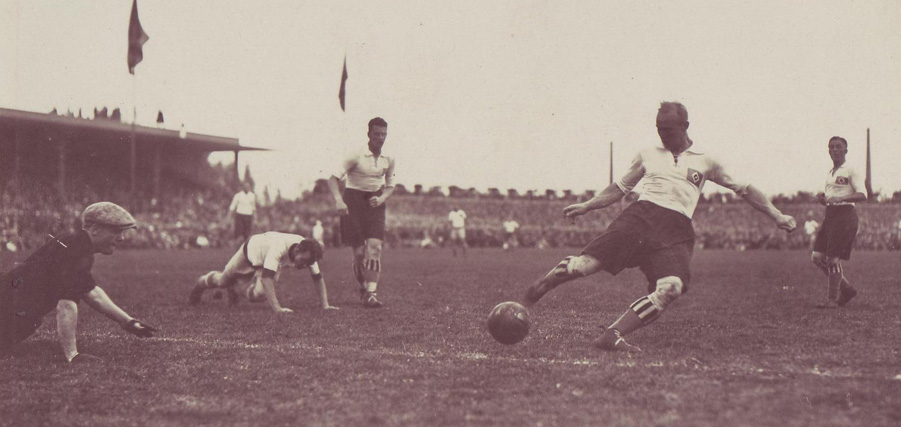
History
11.09.18
The “Eternal Final” of 1922
The final to determine the German champions failed to produce a winner, even after being played twice. To this day, there are no German champions from the year 1922.
Football had never witnessed something like this before, nor has it since: The unforgettable, unrepeatable, “eternal final” of 1922, the year that saw HSV reach the playoff for the German championship for the first time. The game was set to be played on the 17th June in Berlin. The opponents, 1. FC Nürnberg, took the lead twice in the game, but HSV fought back to equalise on both occasions. With 2-2 on the scoreboard after 90 minutes, the teams headed for extra time. Unlike in today’s game, there was no pre-determined time period for extra time, and only after 189 minutes of no goals, and with darkness closing in, the referee called a halt to the game and a rematch was arranged.
Alongside widespread respect for the tireless efforts of the players in this final, criticism about the length of the game could be heard. The demands were clear: New rules were needed. And so, ahead of the rematch, it was decided that in the event of a draw after 90 minutes, two halves of 15 minutes would be added on as extra time. Should this fail to produce a winner, a rematch would be arranged.
This rematch for the German championship between HSV and 1. FC Nürnberg in 1922 took place on the 6th August in Leipzig. HSV arranged for special trains for their supporters, allowing 1,200 or so to make the journey down, but they were met with chaos: According to eye-witness reports, between 50,000 and 70,000 spectators forced their way into the maximum 30,000 capacity ground. As was the case less than a month before, the fans witnessed a draw after 90 minutes (1-1), but when the Nuremberg boys, who only had eight men left on the pitch by this point, lost another player through injury at half time in extra time (substitutions in football did not exist until 1967), the referee ended the game and awarded HSV the win. The reasoning behind the call: FCN no longer had the required number of outfield players on the pitch. A formal error, it would later emerge: According to the rules, Bauwens, the referee, should first have blown for the start of the second period of extra time, before calling the game off. 1. FC Nürnberg protested against the decision and after a lot of back and forth, HSV gave up the title, which meant the “eternal final” had no winner and Germany had no champions. To this day, the DFB officially have no team listed as the 1922 champions.
The title wins of 1923 and 1928 proved to be far less dramatic. These saw HSV beat FC Union Oberschöneweide and Hertha BSC respectively. With two titles from four final appearances, HSV belong to one of the top German teams of the 1920s.



